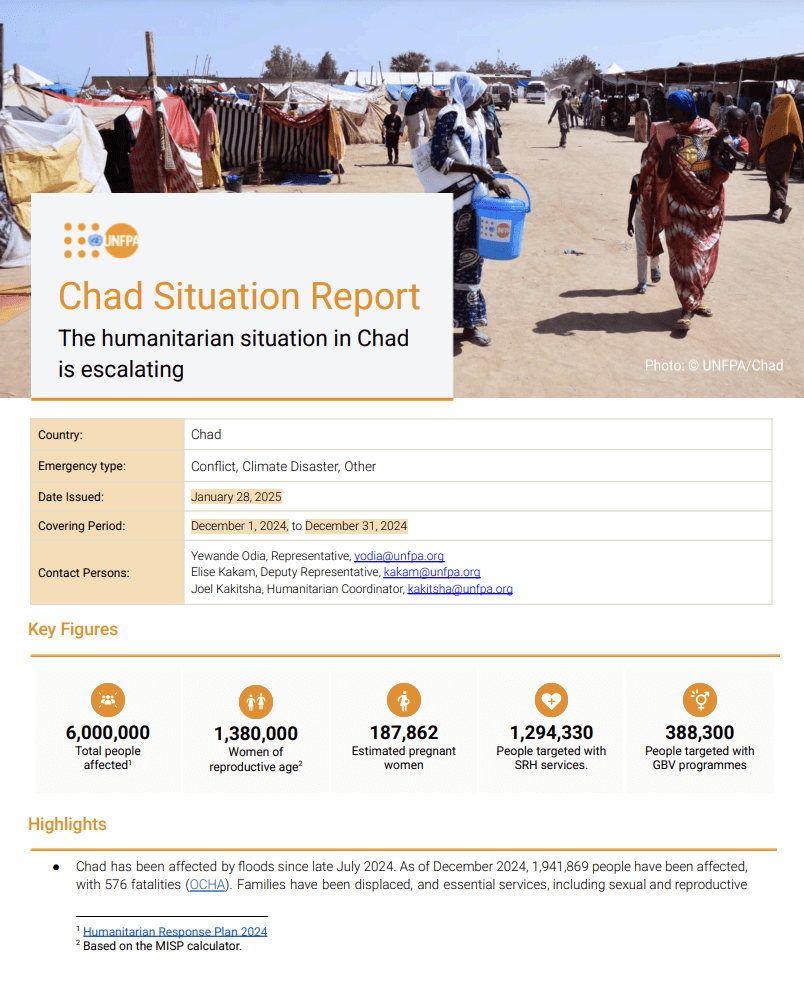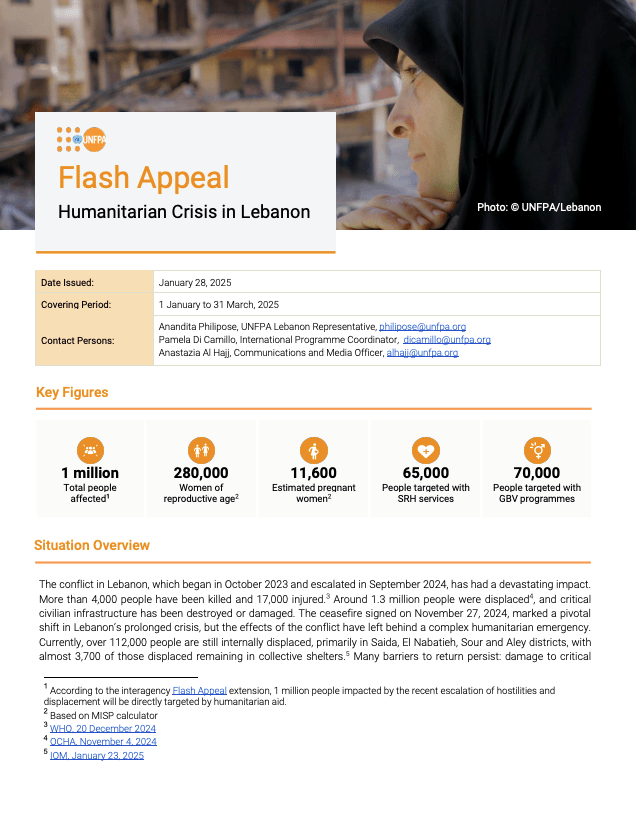
Chad, the second most affected country by the Sudanese crisis, hosts 29.1% of Sudanese refugees, who live in numerous camps and have disrupted access to essential health services. The Lake Chad Province faces poverty, food insecurity, a decimated public infrastructure system, economic decline, trauma, and a protection crisis due to years of conflict and instability. Attacks and abductions against civilians by non-state armed groups continue, negatively impacting women and girls' access to essential services and increasing protection risks. Severe food insecurity, displacement, and floods threaten pregnant and breastfeeding women and their young children. In response to the substantial needs, UNFPA Chad is prioritizing life-saving sexual and reproductive health (SRH) and gender-based violence (GBV) services in Chad, including maternal health care, family planning, and GBV prevention and response, in 13 locations.
UNFPA Chad is responding to the crisis by providing essential SRH and GBV services for women and girls in need, reaching 38,343 people with SRH services and 14,807 people with GBV services in December 2024. They have distributed 48 Inter-Agency Reproductive Health (IARH) kits to support clean deliveries, prevent unintended pregnancies and sexually transmitted infection (STIs). They have also distributed tents to support emergency maternity care and women and girls’ safe spaces. UNFPA-supported humanitarian midwives have been deployed to deliver critical SRH and GBV services, and training has been provided on the identification of pregnancy danger signs and the Clinical Management of Rape. Additionally, women and girls have been sensitized on GBV and protection from sexual exploitation and abuse (PSEA), and 27 safe spaces have been supported.
A GBV sub-cluster meeting in Ouaddaï focused on activism, the PSEA response plan, and a referral system. UNFPA advocated for the PSEA response at a UNHCR emergency coordination meeting. The bi-weekly SRH Working Group meeting in Adré discussed revitalizing the maternal death audit team, distributing SRH kits, and deploying humanitarian midwives. Focus group discussions are planned to raise awareness of SRH services and strengthen coordination.




